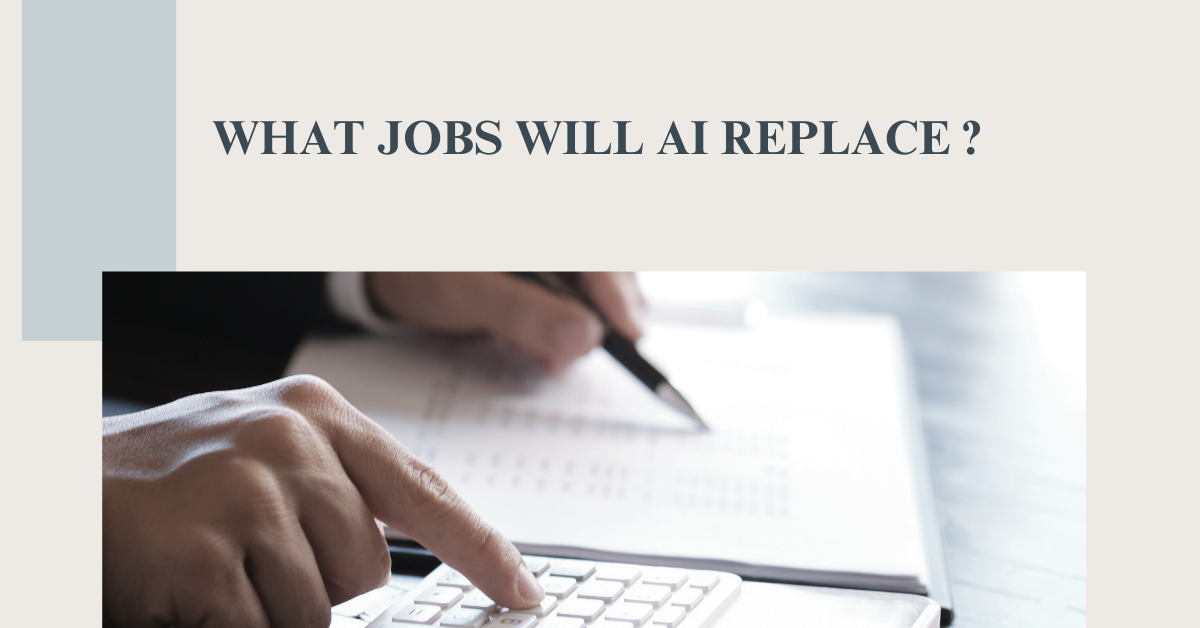
Artificial Intelligence (AI) has transformed the way we live and work, revolutionizing industries, improving efficiency, and enhancing our daily lives. However, with these advancements comes the question of what jobs AI will replace. As AI technologies continue to advance, they are poised to disrupt and potentially replace a wide range of jobs across various industries. In this article, we will explore the impact of AI on the labor market and examine which jobs are most at risk of being automated in the near and distant future.
Understanding AI and Its Capabilities
Before delving into the jobs that AI may replace, it’s crucial to understand what AI is capable of. AI encompasses a wide range of technologies, including machine learning, natural language processing, and computer vision. These technologies enable AI systems to perform tasks that traditionally required human intelligence and decision-making.
AI can analyze vast amounts of data quickly and accurately, recognize patterns, make predictions, and even engage in complex decision-making processes. These capabilities make AI a formidable contender for various tasks in different industries. As AI continues to evolve and improve, it’s essential to assess which jobs might be most vulnerable to automation.
Jobs Vulnerable to AI Replacement
- Data Entry and Administrative Tasks
AI excels at data processing and entry, making it a prime candidate for automating administrative tasks. Data entry jobs, such as filing, sorting, and organizing information, are at risk of being phased out as AI systems can handle these tasks more efficiently, with minimal to no errors.
- Customer Service and Support
Chatbots and virtual assistants powered by AI have already begun to replace human customer service representatives in certain industries. AI can handle routine customer inquiries, provide information, and even troubleshoot common issues, making it a cost-effective and efficient alternative to human customer service agents.
- Manufacturing and Assembly Line Jobs
Robots and automation have been a part of the manufacturing industry for years, but AI-powered robots are taking automation to the next level. These machines can perform intricate tasks, assemble products, and even conduct quality control checks, which can reduce the need for human assembly line workers.
- Telemarketing and Sales
AI-driven algorithms can analyze consumer data and predict buying behaviors with high accuracy. This capability is increasingly being used in sales and telemarketing, where AI can identify potential customers, tailor marketing strategies, and even make sales calls.
- Routine Healthcare Tasks
In the healthcare sector, AI is being used to perform routine tasks such as analyzing medical images (radiology), managing patient records, and even diagnosing common ailments. While AI cannot replace the expertise of doctors and nurses, it can reduce the workload of administrative staff and assist in medical decision-making.
- Transportation and Delivery Jobs
The rise of autonomous vehicles and drones is poised to impact jobs in the transportation and delivery industry. Self-driving cars and trucks can potentially replace human drivers, while drones can perform deliveries more quickly and cost-effectively.
- Banking and Financial Services
AI algorithms are becoming increasingly proficient at tasks such as fraud detection, investment analysis, and even providing financial advice. This could lead to a reduced need for human financial analysts and advisors in certain areas of the financial sector.
- Agriculture and Farming
AI-driven tractors and drones are changing the landscape of farming. They can plant seeds, monitor crop health, and even harvest crops with precision and efficiency. While farmers will still be essential, their roles may evolve, and the need for manual labor could decrease.
- Legal Research and Document Review
AI-powered software can sift through large volumes of legal documents, contracts, and precedents to conduct legal research and document review. This can significantly expedite the work of paralegals and junior lawyers, potentially reducing the demand for these positions.
- Content Creation and Journalism
AI has made strides in generating written content and even news articles. While AI-generated content is not as nuanced as that created by humans, it can handle routine reporting tasks, such as financial reports and sports scores.
Jobs Resistant to AI Replacement
While AI is poised to disrupt various industries, some jobs are less likely to be replaced due to their reliance on human skills, empathy, creativity, and complex decision-making. These jobs include:
- Creative Professions
Roles that demand creativity, such as artists, writers, designers, and filmmakers, are less susceptible to automation. AI can assist in these fields, but the core creative process remains a distinctly human endeavor.
- Healthcare Practitioners
Doctors, nurses, and other healthcare professionals are unlikely to be entirely replaced by AI. While AI can assist with diagnoses and routine tasks, the human touch, empathy, and complex decision-making are integral to patient care.
- Education
Teachers, professors, and educational instructors require human interaction, adaptability, and emotional intelligence to provide effective education. AI can be a valuable educational tool, but it cannot fully replace the role of educators.
- Senior Leadership and Management
Leadership roles require strategic thinking, decision-making, and interpersonal skills that AI cannot replicate. Senior executives, managers, and leaders will continue to play a pivotal role in organizations.
- Skilled Trades
Jobs in skilled trades, such as plumbers, electricians, and mechanics, necessitate hands-on problem-solving and adaptability. These roles often require working in unpredictable environments, making them less susceptible to automation.
The Evolution of AI and Job Transformation
While some jobs may be replaced by AI, it’s important to note that AI can also transform existing roles. For example:
- Human-AI Collaboration
AI can work alongside humans to enhance productivity. In many industries, including healthcare and finance, AI acts as a tool that assists professionals in making better-informed decisions.
- Job Upskilling
As AI takes over routine tasks, there may be a greater emphasis on the skills that AI cannot replicate. This may lead to job upskilling, where workers acquire new skills to remain relevant in their fields.
- New Job Creation
The development and deployment of AI also create new jobs. AI programmers, data scientists, and AI ethicists are roles that have emerged as AI technology advances.
- Personalized Customer Service
While AI can handle routine inquiries, humans will remain valuable for providing personalized, empathetic customer service. The role of customer service representatives may shift towards more complex and relationship-oriented tasks.
- Ethical Oversight
The development of AI technologies has raised ethical concerns. As a result, roles focused on AI ethics, regulation, and oversight are becoming increasingly important to ensure responsible AI deployment.
Preparing for the Future of Work
As AI continues to evolve, workers and industries must prepare for the changing landscape of work. This preparation can include:
- Skill Development
Investing in continuous learning and skill development to stay relevant in the job market is essential. Workers should focus on developing skills that complement AI capabilities, such as creativity, critical thinking, and problem-solving.
- Embracing AI Collaboration
Many industries are already adopting AI as a tool to enhance productivity and decision-making. Learning to work with AI systems can be an asset in the evolving job market.
- Ethical Considerations
The ethical use of AI is a growing concern. Professionals who understand AI ethics and can contribute to responsible AI deployment will be in high demand.
- Adaptable Mindset
A willingness to adapt to changing roles and industries is a valuable attribute in the age of AI. Being open to new opportunities and technologies can help individuals thrive in a dynamic job market.
Conclusion
The impact of AI on the job market is undeniable. While AI has the potential to replace certain jobs, it also presents opportunities for job transformation, upskilling, and the creation of new roles. Industries and individuals that embrace AI as a tool for collaboration and productivity stand to benefit in the changing landscape of work.
Read More :- Best Private University in UP
As we move into an AI-driven future, preparing for these changes is crucial. While some jobs may be automated, the uniquely human skills of creativity, empathy, complex decision-making, and adaptability will remain highly valued. The future of work in an AI-driven world is one of collaboration and adaptation, where human potential is augmented by the capabilities of AI technology.




